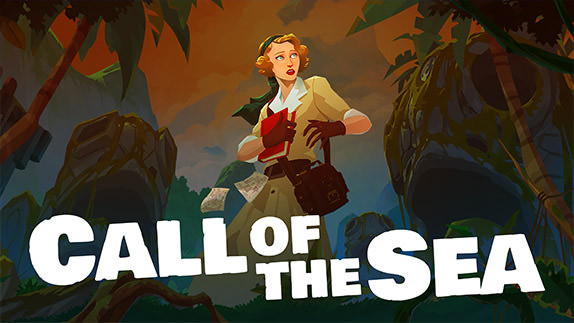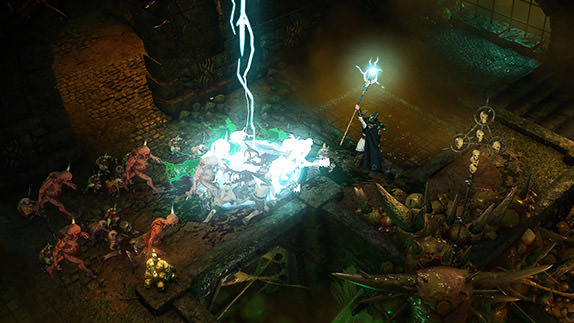Watch Dogs Review

 By Marcus Jones
Posted on June 19, 2014
By Marcus Jones
Posted on June 19, 2014
Watch Dogs. During a long period before the game’s release, the title of Ubisoft’s new AAA title was whispered in hushed tones of reverence. The expectations for the game were monumental; people expected it to revamp the open-world genre and give players new toys to play with within a virtual city full of life. It had a very well done replication of Chicago in all of its gritty glory, from the L Train to seedy back alleys. It had a vigilante terrorist of sorts, named Aiden Pearce, bent on fixing the ills of Chicago. But most importantly, it had the ability for players to hack in an open-world, able to access everything at the drop of a hat and manipulate the world around them.
Does Watch Dogs live up to that hype and reverence? Does it earn the accolade of “genre defining?” Unfortunately, there is no simple answer to that. It has extremely fun gameplay and an interesting storyline, but the game also falls flat in several areas. I guess, then, the short answer to that question is both a resounding yes and no.
The city of Chicago of Watch Dogs resembles a bustling metropolis, one supported by a highly advanced computer system named ctOS (Central Operating System). ctOS connects everything and everyone to a central system and it monitors and controls all of the city’s infrastructure. However, no system is without its flaws and this is where Aiden steps in. A man bent on revenge, Aiden turns from a life of crime and thievery to a life of vigilantism, hunting down those responsible for the death of his niece. In the process, he becomes a force of good within the city, eliminating gang rings, human trafficking, and more. He knows no end to his abilities!
And his abilities are indeed vast. Through his smartphone and “Profiler” app, Aiden has access to everything and can hack anything. I don’t think I’ve ever seen someone this well connected. Using ctOS, Aiden can immediately target someone and find out everything about them. From there, he can hack accounts, listen to conversations, or even steal vehicles for his own use later. He can use security systems to hack into people’s homes, spying on them through their computer’s webcam and learning their dirty secrets in the process. Hell, Aiden can hack electrical conduits inside of buildings under construction, causing them to explode and hurt anyone nearby. This level of access is a hacker’s dream, Hollywood’s fantasy, and downright scary. This is 1984 turned on its head, where the little man uses Big Brother’s tools for his own bidding.
Watch Dogs follows the archetypical framework of any open world, sandbox game alá Grand Theft Auto. Too bad the driving mechanics aren’t quite as tight. The game’s setting of Chicago leaves you with many areas to explore; places like The Loop, Brandon Docks, Mad Mile, and more. There are 6 distinct districts available to explore, each with their own unique architecture and design. It’s obvious within the game when you move between areas, not only because the game lets you know you’re somewhere else but because it’s easy to see. Cars change, buildings look different, and in some cases, it goes from a very enclosed cityscape to open terrain in rapid fashion.
Moving around with the game is completely freeform for Aiden. Immediately there is nothing off-limits for Aiden and you can go to any piece of the map in short fashion. However, do not expect any access into hacking an unlocked area. Just enjoy that scenery a bit longer. Unlocking more of the map and game itself ties directly story progression, but there are also major chunks that can be earned without completing anything more than side missions. The game’s story follows Aiden’s quest for vengeance. It’s not gripping, but it is excellently paced when you’re not running around playing Mr. Driver.
Aside from the single-player, Watch Dogs offers an incredibly awesome amount of things to do in Chicago. The game’s side missions are plentiful, and while short in cases, serve to breathe some life into the city and residents of Chicago. You’re able to take down criminals before they act, knock out gang hideouts, or even just move stolen merchandise around. There’s also gambling, Alternate Reality games, and stuff like hunting down a freaky serial killer or learning more about the origins of ctOS. As a bonus, these also provide additional progression rewards, like additional weapons and more skills points to spend upgrading Aiden’s skill sets.
The last interesting piece of the game is the online gameplay. There are a variety of modes to try, including free roam, racing, and Hacking. Some of these are seamless, like Hacking, which has you drop into someone else’s game undetected From there, you’re expected to stick close to the target and install a backdoor program into their smartphone, granted access to it for yourself. During the install process, other players must profile you with their smartphone to root you out, bringing the situation to a flight or fight response. It’s fun and somewhat hectic, as enemy players look like generic citizens from Chicago while you remain as Aiden. For icing on the cake, completing portions of this mode grant additional bonuses in your game.
Watch Dogs suffers from what I’ve been coining as “Virtual ADHD.” There’s too much too fast and it is never ending. My biggest complaint with the game is its incessant need to throw something new into my face, telling me there’s a crime in progress or a criminal convoy is on the move. And this is a serious complaint – I never knew what the hell the game wanted from me. I could be en route to something it pointed out only to suddenly switch plans and pull a 180 handbrake move for the opposite direction.
Aside from the game’s continual inability to decide my next course of action, there’s another issue at stake. Aiden himself is…well, a dick. An unlikeable dick. “Hero” or not, I didn’t really care for him. Even in the antihero light, he’s not very likeable. Aiden felt like a cardboard prop, moving from place to place. His interactions with others felt stiff and awkward most of the game, and while I do feel for his plight of revenge, I ultimately didn’t find myself driven to complete his story for anything other than additional upgrades and my own interesting in progressing. The side missions caught more of my attention everywhere I went and while I’d receive a quick, one-off remark from Aiden about the situation, he’d always shut up and let me do the work. I didn’t feel any connection to him.
Simply Put
Watch Dogs is a solid game, but I feel it falls short of the mark Ubisoft set for it. The single-player experience is a decent length and there’s plenty to do around town, it’s just too bad I never know what the game wants me to focus on. Aside from that, the game’s world is rich in fascinating points of interest for you to explore. Throw in some decent multiplayer that works somewhat seamlessly with the single-player and it’s an overall solid game. Too bad Aiden is just such a cardboard prop.
Note: Watch Dogs was reviewed on Xbox One. A physical copy of the game was purchased by SelectButton.




